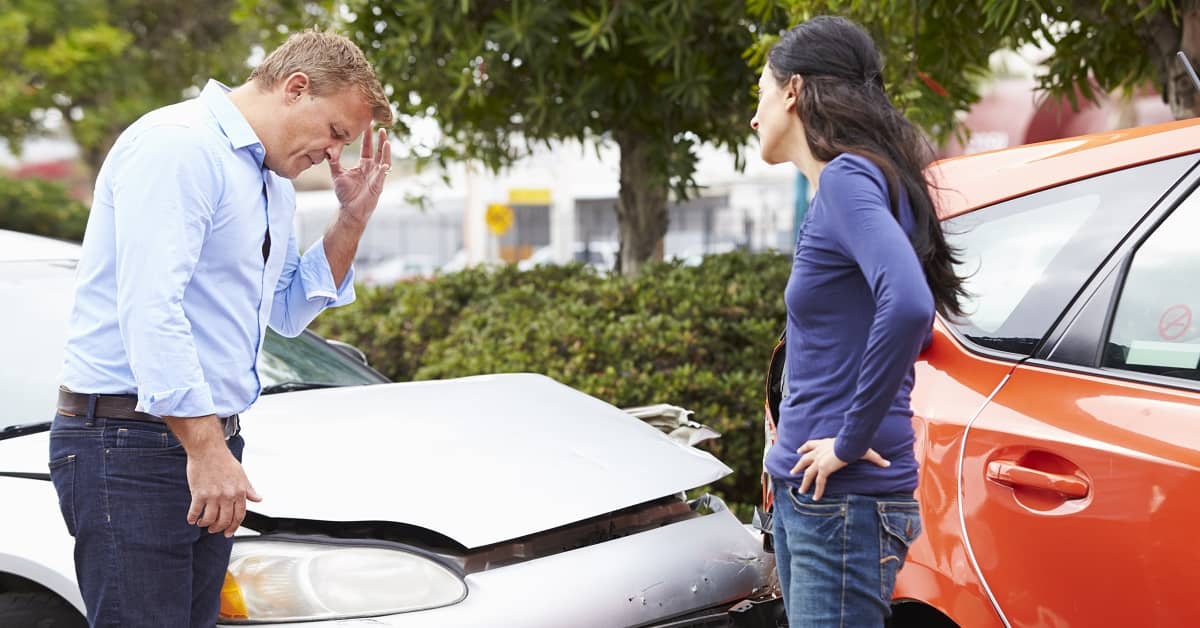
After a collision, fault for the accident is a common topic of dispute. Unfortunately, a word against word car accident is not unusual. It may seem like it’s you against the other driver, battling it out at the scene.
In the heat of the moment, the driver of a vehicle may ignore all indications to the contrary in asserting that the driver in the other vehicle caused the crash. Such exchanges can become inflamed, potentially making both motorists say and do things that they later regret.
The most important thing to do after being in a car accident is to take a breath and remain calm. Becoming angry will not get you anywhere, and it may cause problems at a later date.
Now that you’ve taken a moment to lower your heart rate, prioritize safety. Check to see: Is anyone hurt? Do people need to be moved to a safer location? Do you need an ambulance?
Once everyone is safe, it is time to protect your rights. If you are calm, you can take action at the scene to begin building your car accident case.
At Patrick Daniel Law, we have vast experience representing victims in word against word car accident cases. Call (713) 999-6666 today to schedule a FREE case evaluation with our Houston car accident lawyer. Let’s pursue the compensation you need when you need it the most.
In a word against word car accident, the following steps are the best way to prove that your account of the accident is accurate and reliable:
Without proof of relevant details about the accident (such as the position of the vehicles, conditions at the scene, etc.), the basic facts may boil down to your version of events versus that of the other driver. To recover compensation, you need something more than just your word. Remember, then, that a picture is worth a thousand words.
Nothing establishes the truth about an accident better than photos or video substantiating what you observe at the scene. Some details may be obvious, such as the fact that the other driver struck your vehicle from behind. Others, however, may require expert analysis to determine what they mean, such as the direction and location of skid marks.
It’s also vital to search for potential footage. Investigate the area for security, traffic, and red-light cameras, as they may have captured the incident. However, the majority of people today have a high-resolution camera right in their pockets. Use your smartphone camera to capture any and all images that you think may be relevant to your case.
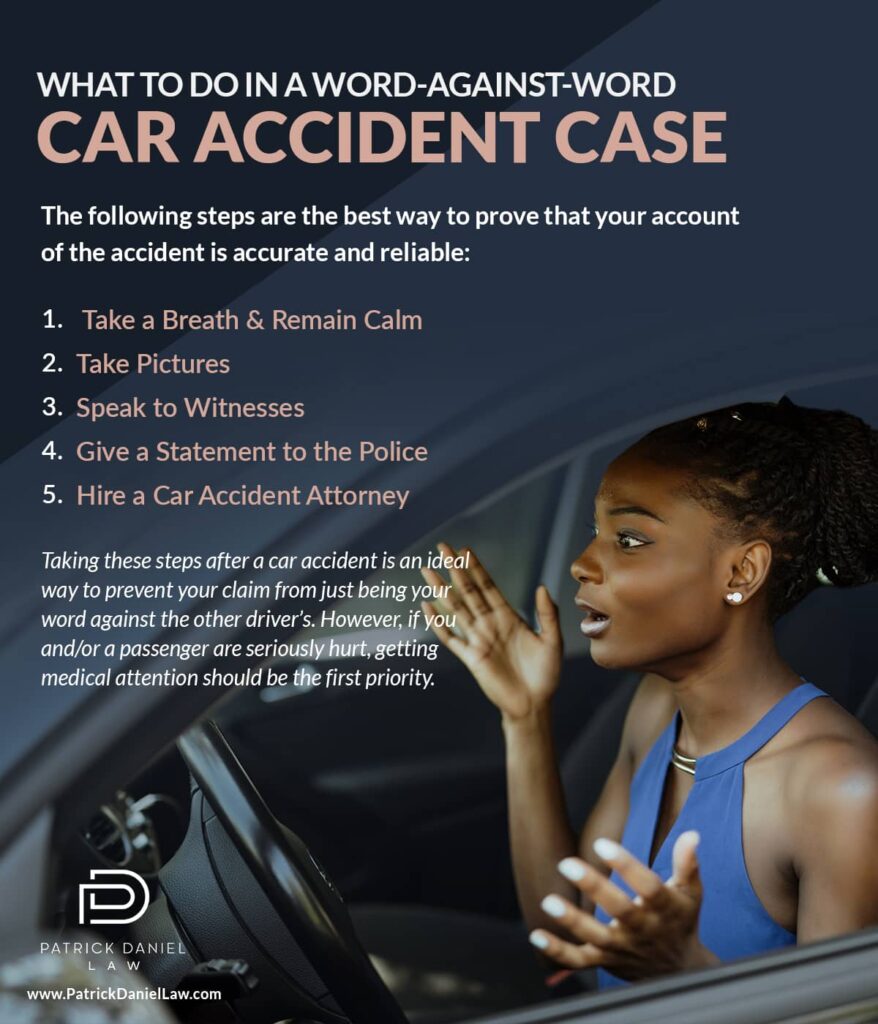
Sometimes, the drivers who cause accidents may argue that it is “their word against yours.” However, this is no longer true if one or more bystanders see the accident and their account supports your claim.
Talk to as many witnesses as you can in the aftermath of an accident, and be sure to take down their information if you need to speak to them again. Getting multiple perspectives is ideal, although even the testimony of just one credible witness to the accident can be beneficial for pursuing a claim against the other driver.
Law enforcement is not required to respond to every car accident scene. In Texas, for example, motorists are only required to report an accident to the police if it results in one or more of the following:
In cases of visible or obvious injury, nobody would hesitate to call 911. However, sometimes the existence of an injury is not immediately clear. Therefore, unless you are involved in a truly minor accident (such as a low-speed “fender bender”), it is in your best interest to ask for law enforcement to respond.
When the police arrive, tell the officer what you saw and experienced before the accident occurred and during the crash. Your emotions may be running high, but try to stay calm and stick to the facts. Your statement will be included in the police officer’s accident report, and you don’t want an exaggeration or suggestion of fault on your part to end up on the official record.
The police officer will also interview the other driver and any occupants of the vehicles, as well as take additional steps to investigate the scene. The police report may include a preliminary conclusion on how the accident happened and who is at fault.
Although not usually admissible in court, a finding of fault against the other driver can only strengthen your case. It also makes it more difficult for the at-fault driver to argue that you are to blame.
In the absence of witnesses to a car accident, building a strong case can be challenging but not impossible. A car accident lawyer can employ methods to compensate for the lack of eyewitness testimony, including:
In word against word car accident cases, the credibility of each driver plays a crucial role in determining the outcome. Several factors can influence a driver’s credibility:
A driver’s account of the accident should be consistent over time, from the initial statement at the accident scene to later descriptions to insurance companies or in court.
A driver with a history of violations or accidents may be viewed as less reliable compared to a driver with a clean record.
The presence of evidence that supports a driver’s account, such as physical evidence from the accident scene or vehicle data, bolsters credibility.
How a driver behaves immediately after the accident, including their willingness to exchange information and cooperate with law enforcement, can impact credibility.
If available, statements from witnesses can lend significant support to a driver’s account.
The police report, while not definitive, can lend weight to a driver’s version of events, especially if it includes an officer’s observations or conclusions about fault.
A car accident lawyer will meticulously assess all these factors. Their approach should be to understand the accident’s specifics and present your account in the most credible and convincing manner possible. This strategic approach can be decisive in swaying the outcome in your favor.
In Texas, if you are found partly at fault for a car accident, your ability to recover compensation is governed by the rule of “proportionate responsibility,” as outlined in Texas Civil Practice & Remedies Code § 33.001. This rule follows a modified comparative fault system, which means:
For example, in a car accident where the total damages are $100,000, and you are found 20% at fault, you would be eligible to recover up to $80,000. Understanding the implications of comparative fault is crucial, especially in a word against word car accident. Consulting with a car accident lawyer can help clarify your position and maximize your potential compensation under this rule.
In a word against word car accident in Texas, where fault isn’t immediately clear, you still have several options for seeking compensation:
Depending on your coverage (like collision or uninsured motorist coverage), you may receive compensation regardless of fault.
If you have evidence to support your claim, negotiating with the at-fault party’s insurance company is a viable option.
These alternative dispute resolution methods can be used to reach a settlement without going to court.
If negotiations fail, you can file a lawsuit. The court will weigh the evidence to determine fault and compensation.
A Houston car accident lawyer can evaluate your case, gather evidence, negotiate with insurance companies, and represent you in court if necessary.
In each of these options, evidence plays a crucial role in supporting your claim. This can include any photos or videos from the accident, witness statements, police reports, and expert testimony. A lawyer’s experience in evidence gathering and case presentation can significantly impact the outcome of your claim.
Taking these steps after a car accident is an ideal way to prevent your claim from just being your word against the other driver’s. However, it is not always safe or practical for accident victims to take these steps at the scene.
If you and/or a passenger are seriously hurt, getting medical attention should be the first priority. Unfortunately, this means that you will likely lose the opportunity to gather evidence immediately following the accident.
Hiring an attorney as soon as possible is essential. A lawyer can investigate and collect the evidence you couldn’t at the time, as well as go further by hiring experts to assess the facts and provide testimony. Expert analysis of photographs, damage to the vehicles, records of your injuries, and more can all improve the likelihood of a successful outcome in your car accident claim.
Attorneys are trained to examine arguments and evidence closely. If the facts don’t support what the other driver is saying, having a lawyer on your side can make an enormous difference in overcoming the “word versus word” problem that arises in the wake of many car accidents.
The aftermath of any accident is overwhelming. When emotions run high, it is not uncommon for the drivers involved to blame each other. Insurance companies do little to correct the mistaken impressions, half-truths, and even lies that an insured may raise. After all, if the insurance carrier can disclaim responsibility, the less it will have to pay.
Proving liability for a car accident is crucial for recovering the compensation you deserve. At Patrick Daniel Law, our team is Strategic, Meticulous, and Merciless. We fully investigate the accident to determine who is at fault and gather evidence to prove that you are entitled to damages.
Please contact Patrick Daniel Law today for a FREE case review. Our car accident lawyer serves clients throughout Houston and all of Texas.
 Top Truck Accident Lawyer in Pasadena
Top Truck Accident Lawyer in Pasadena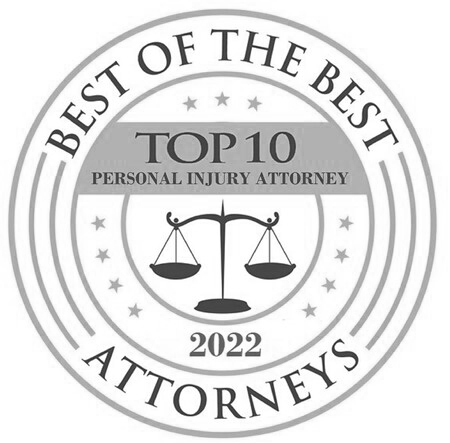 Best of The Best Attorneys
Best of The Best Attorneys Best of the Best Houston Chronicle 2021
Best of the Best Houston Chronicle 2021 Best Motorcycle Accident Lawyers in Houston 2021
Best Motorcycle Accident Lawyers in Houston 2021 American Association for Justice Member
American Association for Justice Member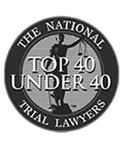 The National Trial Lawyers 2016 – (Top 40 under 40)
The National Trial Lawyers 2016 – (Top 40 under 40)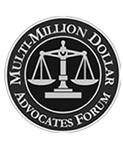 Multi-Million Dollar Advocates Forum 2016 (Top Trial Lawyer)
Multi-Million Dollar Advocates Forum 2016 (Top Trial Lawyer)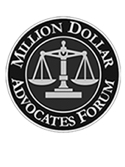 Million Dollar Advocates Forum 2019 (Top Trial Lawyer)
Million Dollar Advocates Forum 2019 (Top Trial Lawyer)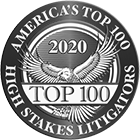 America’s Top 100 Attorneys 2020 (High Stake Litigators)
America’s Top 100 Attorneys 2020 (High Stake Litigators)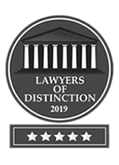 Lawyers of Distinction 2019, 2020 (Recognizing Excellence in Personal Injury)
Lawyers of Distinction 2019, 2020 (Recognizing Excellence in Personal Injury)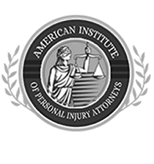 American Institute of Personal Injury Attorneys 2020 (Top 10 Best Attorneys – Client Satisfaction)
American Institute of Personal Injury Attorneys 2020 (Top 10 Best Attorneys – Client Satisfaction) American Institute of Legal Advocates 2020 (Membership)
American Institute of Legal Advocates 2020 (Membership)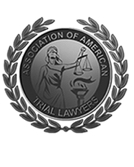 Association of American Trial Lawyers 2018 - Top 100 Award recognizing excellence in personal injury law
Association of American Trial Lawyers 2018 - Top 100 Award recognizing excellence in personal injury law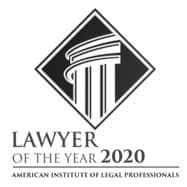 American Institute of Legal Professionals 2020 (Lawyer of the Year)
American Institute of Legal Professionals 2020 (Lawyer of the Year) Lead Counsel Verified Personal Injury 2020
Lead Counsel Verified Personal Injury 2020 The Houston Business Journal 2021
The Houston Business Journal 2021